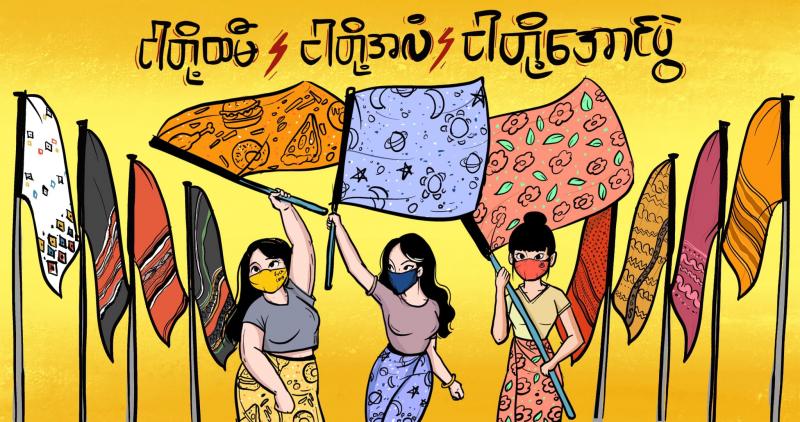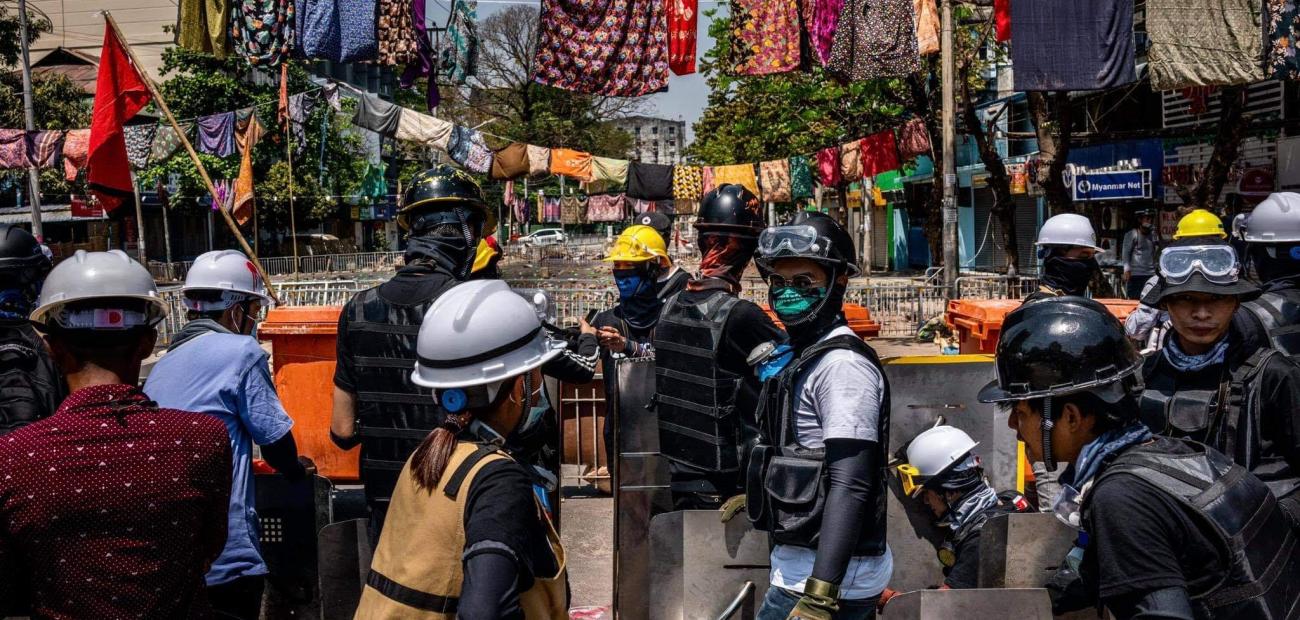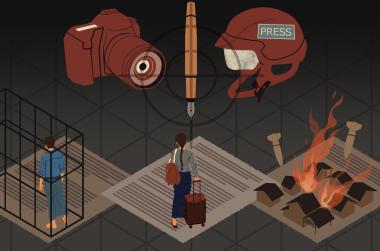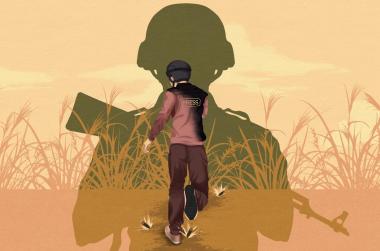Linn, 28, is from Myanmar’s Shan State but lives and works in Yangon. This is her resistance diary.
8th March 2021 was International Women’s Day and on that day, to prepare for the protests on Banyardala Road, young men were stringing up women’s longyis (a sarong called a htamein) across the road like they were hanging lanterns at their house for Chinese New Year, or decorating for Christmas. Some demonstrators, holding a longyi as a flag as if a trophy was bestowed upon them, joined the frontline of the march. It gave me chills to see these longyis, looking a bit like flags of the world waving in the air. Never in a million years did I think these longyis would be a beacon of hope in a socially conservative country like Myanmar.
For several decades, or must I say, for some centuries, women’s htamein and their underwear were regarded by Myanmar men as untouchable. Touching or walking beneath them was considered bad luck. Even washing htamein with men’s clothes is traditionally forbidden and a separate htamein wash is still common in Myanmar households.
Gender inequality has stemmed from such social stigmas. Society in Myanmar regarded men as superior to women, believing men have much higher Bhone (power). Bhone is rooted in toxic masculinity and can be very harmful to both women and men. Disturbingly, it has given men a belief that they can treat women as less than human in social structures.
Men are convinced that they are more valued and important than women and their bhone will be tainted if associated with women’s lower part, which includes clothes like the htamein and underwear.

Htamein and sexism
Rallies against the military coup have turned the tables. Pro-democracy marchers have taken full advantage of the unprogressive beliefs of the armed forces and now htamein are hung in the middle of the road as protection from the police force’s brutal crackdown in many protests in Yangon and other cities. This has helped break the long-held taboo over htamein and women’s underwear in Myanmar’s society. Now men in Myanmar are additionally committed to fight against gender discrimination along with the political visions of restoring democracy and removal of the military institution. Without any resentment, men proudly wrapped used htamein around their head and neck to show solidarity for gender equality on International Women’s Day.
A teenage boy participating in the htamein campaign said, “all men came from women’s lower part. It does not make sense that htamein can make anyone less of a person. These men should be ashamed of their sexist belief and behavior.”
Everyday women are unsung heroes
This year Women’s Day celebrates the tremendous efforts by women and girls in shaping a more equal future and recovery from the pandemic. Because of COVID-19, women have had to bear a higher domestic burden and face higher incidence of domestic violence during lockdowns. This pandemic has disproportionately impacted women and girls, 75% of health and social service workers are women in Myanmar and they are on the frontlines of the COVID-19 response. In addition, thousands of young women in Myanmar are at the heart of the anti-coup protest movement and many took frontline roles putting their life at risk.

At the same time, teenage girls and women have been shot, barbarously beaten and locked up in prison by the security forces during peaceful demonstration. In Karen state girls have had to study in hiding and thousands of women have fled their villages due to armed fighting in Kachin, Rakhine and Shan states. Women in these regions have been subjected to sexual violence such as gang rape and mutilation. Hope for Myanmar was lifted for a few years under the leadership of a woman, but beaten down again by the same army. The suffering of women from the state leader Aung San Suu Kyi to stateless Rohingya women, is directly linked to the army’s activities and their atrocities in Myanmar.
It could not be clearer that the Myanmar military is the biggest threat to women and the people of Myanmar.
Today, hundreds of protesters who were marching in support of International Women’s Day were trapped by security forces in Sanchaung. State-run MRTV said that it showed a lack of respect to monks if they had to walk under htamein and warned the leaders of Htamein campaign could be charged with intent to insult Buddhism.
Regardless of the collaboration between Myanmar young men and women to end social stigma and gender discrimination, there is still a long way to go to achieve gender equality in Myanmar.
Photo from Linn and artwork courtesy of Art for Freedom Myanmar https://www.threefingers.org/





